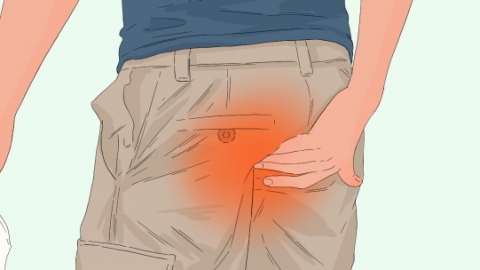What should I do for chronic anal fissure?
Generally, chronic anal fissures are often caused by long-term constipation leading to repeated tearing of the fissure, poor defecation habits exacerbating injury, chronic perianal inflammation hindering healing, anal sphincter spasm, and malnutrition delaying tissue repair. It is recommended to seek medical attention promptly, identify the underlying cause, and follow a doctor's guidance to improve symptoms through general management, medication, and other approaches. Specific factors are analyzed as follows:

1. Repeated tearing due to long-term constipation: Hard stools continuously rub against existing fissures, making healing difficult and potentially worsening the tear. Drink about 2000 mL of water daily, consume more dietary fiber-rich foods such as oats and kiwi fruit, and if necessary, use lactulose oral solution as directed by a physician to soften stools and reduce irritation to the fissure.
2. Poor bowel habits aggravating injury: Prolonged squatting and excessive straining during bowel movements increase pressure in the anal canal, impairing fissure recovery. Develop regular bowel habits, limit each bowel movement to no more than 5 minutes, avoid overstraining, and consider using a squatting stool to assist defecation.
3. Chronic perianal inflammation impeding healing: Recurrent bacterial infection around the anus causes inflammatory stimulation and induration at the edges of the fissure. After bowel movements, perform warm water sitz baths for 15 minutes, and apply medications such as glyceryl trinitrate ointment, compound algininate cream, or erythromycin ointment as prescribed to reduce inflammation and promote healing.
4. Anal sphincter spasm: The fissure stimulates persistent contraction of the sphincter muscle, reducing local blood flow and delaying healing. Take medications such as diosmin tablets, micronized purified flavonoid fraction tablets, or melilotus extract tablets as prescribed, combined with warm sitz baths to relax the sphincter and improve local circulation.
5. Malnutrition delaying tissue repair: Deficiencies in protein and vitamins reduce tissue regeneration capacity, resulting in persistent non-healing fissures. Adjust your diet to include nutrient-rich foods such as eggs, lean meat, and spinach. If needed, take multivitamin supplements under medical supervision to enhance healing. In severe cases, surgical excision of the anal fissure may be required to remove diseased tissue and promote new tissue growth.
In daily life, avoid spicy and irritating foods to reduce mucosal irritation in the anal canal. Wear loose, breathable cotton underwear, wash and change it frequently, and keep the perianal area clean and dry. Maintain a regular sleep schedule, avoid staying up late, and engage in mild physical activities such as walking to strengthen the body’s overall healing ability.




